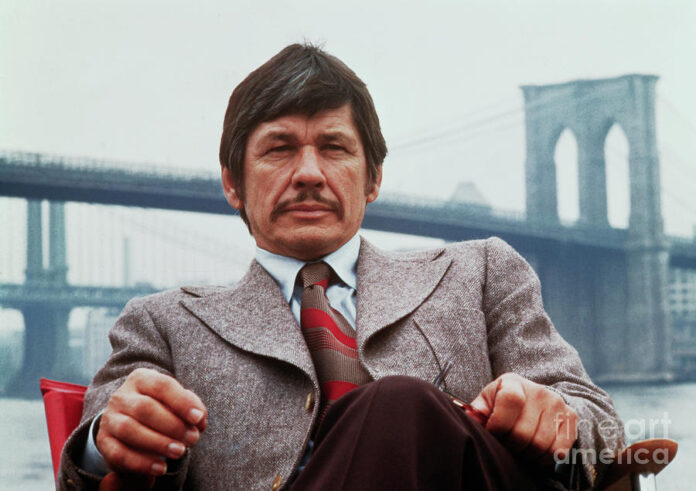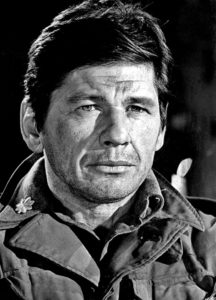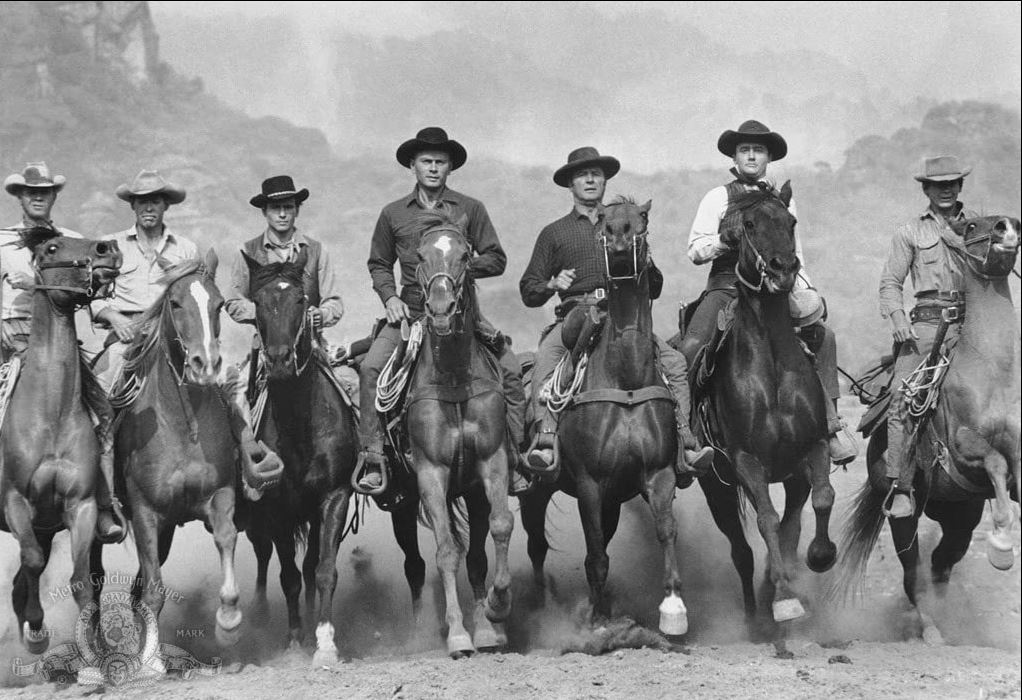
Yes, Charles Bronson was Lithuanian!
A standard joke among Lithuanians is that almost every second famous person in the news is of Lithuanian descent, including Elvis Presley, whose name easily translates into Lithuanian as Elvis Preslauskas. He is definitely not Lithuanian, but the website bernardinai.lt has been publishing an interesting series by Audrius Dambrauskas on real Lithuanians in world cinema.
A recent article featured Charles Bronson. November 3, 2021, was the 100th anniversary of his birth in the mining town of Ehrenfeld, Pennsylvania, where his father Vladislovas Kazimieras Povilas Bučinskas emigrated from Druskininkai, Lithuania, and became Walter Buchinski. It is said that he was a Lithuanian Tatar, who fled Lithuania in 1905 to avoid conscription to the Czar’s army during the Russo-Japanese war.

In the late 1800’s and early 1900’s, to escape dreadful living conditions in Russian-occupied Lithuania, many emigrated to other countries, and especially to the US, which became home to about 10,000 Lithuanians per year. Many, including Bronson’s father, found work in the coal mines of Pennsylvania. Here Buchinski married Pennsylvania-born Mary Valinsky (Marija Valinskytė) whose parents had also emigrated from Lithuania. Ehrenfeld was a typical mining town, with a large population of Polish, Lithuanian and Scottish immigrants, who were all employed in the mines or in the mining industry.
Charles Dennis Buchinski (Karolis Dionyzas Bučinskas in Lithuanian) was Walter and Mary’s ninth child. He remembered that during a miners’ strike his family was evicted and had to shelter in the basement of another miner’s house. The family’s situation worsened when the Great Depression began in 1929, and then Walter died in 1933. Charles’ older brothers already worked in the mines, and he had no recourse but to join them, earning one dollar per ton of coal that he extracted. World War II became his way out. He signed up with the Armed Forces, and became an aircraft gunner, was later injured and earned a Purple Heart. Five of his brothers also fought in that war. The army had provided him with food, clothing and shelter and the opportunity for schooling after the war ended. He later said he would rather be a gunner being shot at by the Japanese than return to the mines.
After the war his work included digging onions, delivering mail, taking night shifts at a bakery, among other jobs, and he studied painting under the GI Bill. He entered the world of theatre when he joined an acting group in Philadelphia. It came to him easily, and paid well. In 1950 he moved to Hollywood, took acting classes and got his first movie roles.
Over his 50-year career, he starred in nearly 80 films, with actors such as Elvis Presley, Elizabeth Taylor, Frank Sinatra, Steve McQueen, Gary Cooper, Alain Delon, Robert Redford, Vincent Price, Sean Penn, Keanu Reeves, Alec Baldwin and many others. In his first role he played a sailor in the 1951 film We‘re in the Navy Now, directed by Henry Hathaway. At first he used the surname Buckinsky (his legal name, Buchinski, appeared in only one film), but he presented his screen name, Charles Bronson, in the 1954 Western Drum Beat, directed by Delmer Daves). He may have taken the name from the Paramount Studio gates named for Bronson Avenue which led up to them. The name change worked, and Drum Beat launched him to fame. He began getting good parts in movies such as The Magnificent Seven, The Great Escape, and The Dirty Dozen.

But his true rise to stardom awaited him in Europe. Spaghetti Westerns such as Once Upon a Time in the West (1968) and the French-Italian crime thriller Adieu l‘Ami (1968) with Alain Delon became international hits, and made Bronson a superstar – yet not in the US. Finally at home by the 1980’s he was earning a million dollars per film and was the highest-paid actor world-wide. He was already 50, but in prime physical shape, exercising regularly, avoiding alcohol, and finally quitting smoking in the mid-80’s. As an avenging hero he was most famous for the 1974 film Death Wish, which had four sequels, the last of which he acted in at the age of 72.
In person Charles Bronson was an unsmiling introvert. While other actors strove for more lines of dialogue, he would abbreviate his speaking parts. He didn’t like small talk, on screen or in real life. He disliked seeing himself in films, the last one he viewed being House of Wax (1953) with Vincent Price. He always said that his family was his best “production”, more important than anything else, and he fiercely defended his and his family’s privacy. His contracts always stipulated an eight-hour working day, and he devoted the rest of his time to his family.
He said in interviews that he would like to visit Lithuania, but it never happened.
His last film was produced in 1999, when he was 78. The following year he was diagnosed with Alzheimer’s disease. He died in 2003 due to complications from lung cancer.





























